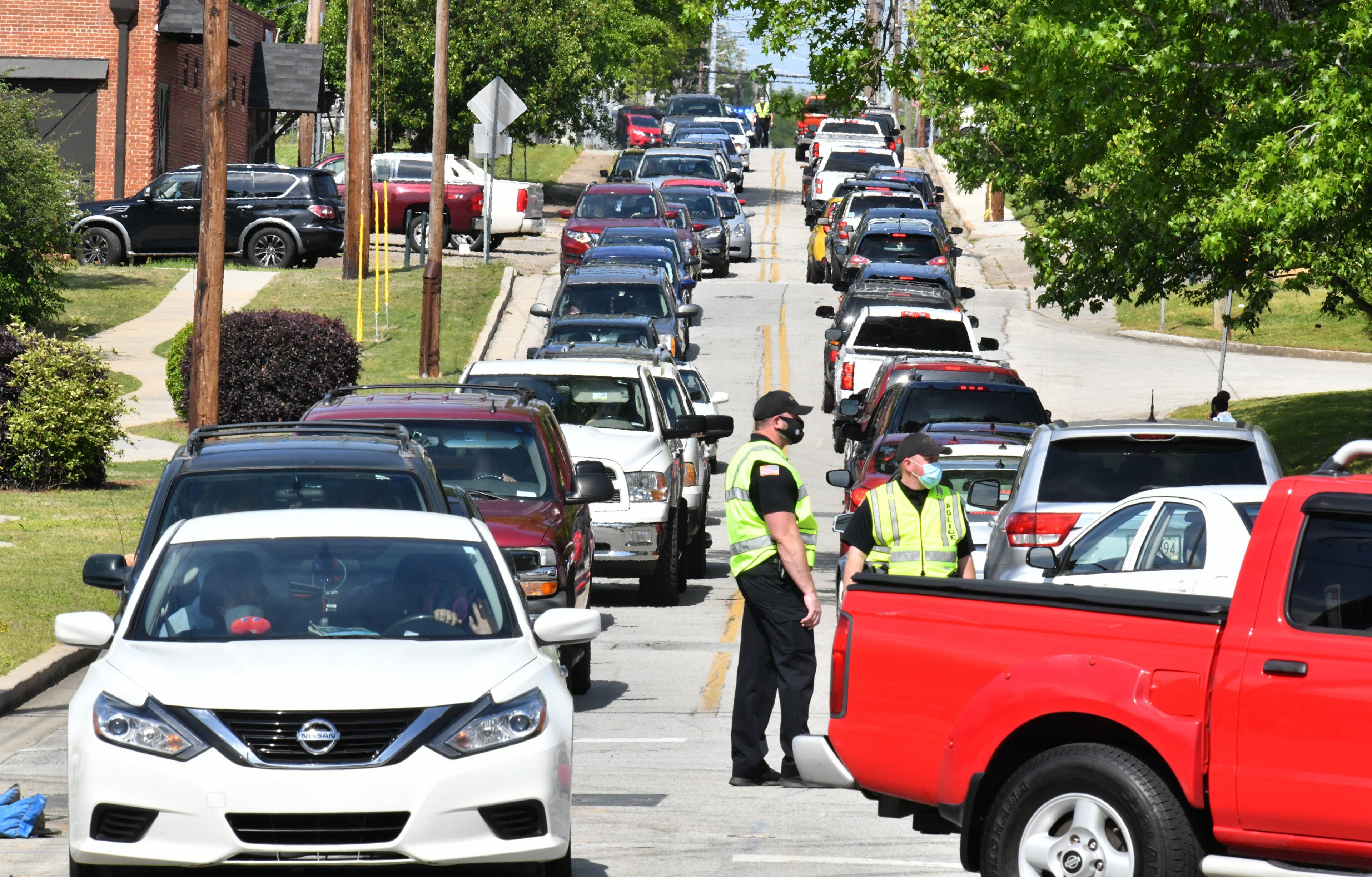Amid conflicts over outbreak’s path, Kemp weighs Georgia’s next steps
Georgia recorded its 1,000th death from the new coronavirus Tuesday after state officials cited “encouraging data” to justify easing social-distancing measures.
But many public health experts and scientific models cast doubts on the officials’ rosy conclusions. Ending a statewide lockdown too soon, experts said, could reverse any positive trends.
If Gov. Brian Kemp lets a shelter-at-home order expire on Thursday, the state’s death toll ultimately could double, one new model predicts. The model was produced jointly by Harvard University and the Massachusetts Institute of Technology.
“I’m not sure the worst is behind us because I’m not sure where we are,” in part because Georgia has lagged behind other states in testing for the virus, said Dr. Harry J. Heiman, an epidemiologist and clinical associate professor at Georgia State University’s School of Public Health. “I’m also not sure because the policy decisions we make going forward are very much going to determine whether our trajectory moves in a positive direction … or whether we open the door to having a resurgence of cases and being right where we are in the first place.”
Kemp will have to weigh these conflicting analyses as he plans Georgia’s next steps to revive an economy wrecked by weeks of limited business activity. Already he has allowed restaurants to resume dine-in service and certain other businesses — such as hair and nail salons, gyms and tattoo parlors — to reopen under strict conditions to minimize the virus’ spread.
But a majority of Georgians surveyed by the University of Georgia think Kemp is moving too fast. The poll, released Tuesday, found that only 10% of Georgians opposed the statewide lockdown, while about 62% disapproved of Kemp’s initial steps to reopen businesses.
The online survey of 1,233 registered Georgia voters, conducted between April 21 and 25, has a margin of error of 3.1 percentage points.
» COMPLETE COVERAGE: CORONAVIRUS IN GEORGIA
» IN-DEPTH: False-negative tests may cloud picture of coronavirus' spread in state
Since the poll was conducted, Georgia’s death toll from COVID-19, the disease caused by the new coronavirus, increased from about 900 to 1,036, as of Tuesday evening. Almost 25,000 Georgians have tested positive for the virus.
Kemp has hinted that he is unlikely to extend the statewide lockdown for most Georgians past its scheduled expiration of 11:59 p.m. Thursday. However, he has ordered elderly and medically fragile residents to remain at home until at least May 13. Other restrictions, such as bar closures, remain in force until that date.
But many businesses appear poised to open their doors on Friday. Among them are Lenox Square, Phipps Plaza, the Mall of Georgia and four other shopping malls and retail outlet centers owned by the Simon Property Group. Even if the lockdown ends, public gatherings of more than 10 people without adequate social distancing will still be prohibited for another two weeks or more.

During a news conference Monday, Kemp’s public health commissioner, Dr. Kathleen Toomey, acknowledged the state had not fully met federal guidelines for reopening state economies. But an hour later, the governor’s office posted a video on Twitter in which Toomey gave a more positive report about “the encouraging data we are seeing.”
“We are seeing good signs that the actions Georgians have taken to mitigate coronavirus are paying off,” Toomey said, “and we are deeply grateful to all the people who have been fighting with us to flatten the curve.”
She cited declines in reported flu-like illnesses and in emergency room visits by people exhibiting coronavirus symptoms, as well as a decrease in the rate of positive coronavirus tests. The White House urged states to demonstrate downward trends in all three indicators over 14 days before easing business restrictions.
But on its website, Toomey’s agency shows an increase in confirmed coronavirus cases and deaths. The only decline in new cases appears to be during the past 14 days — a period for which, the website says, data is incomplete.
On Tuesday, the governor’s office released a series of graphs showing a flattening or a decrease in the three indicators Toomey mentioned in the video. Candice Broce, a spokeswoman for Kemp, said Georgia has “always” met two other White House criteria: boosting hospital capacity and a robust testing program for health care workers.
But the graphs used different time frames to arrive at the averages, complicating a comparison of the data sets.

Independent models offer a much more dire forecast.
The latest model from the University of Washington’s Institute for Health Metrics and Evaluation predicted Georgia will not reach its peak of daily deaths until Saturday, more than two weeks later than the nation as a whole. Earlier models said the peak of deaths had already passed. The model, based on social-distancing measures remaining in effect until June 28, now predicts deaths in Georgia will exceed 2,400 by late June.
On Tuesday, researchers at Harvard and MIT predicted that as many as 2,922 Georgians will die from the coronavirus by mid-June. But that number could nearly double, the researchers said, if Kemp allows more business activity to resume.
Kemp has made it clear he is not beholden to any models.
“We’re not just relying on one model,” he said Monday. “We’re relying on Dr. Toomey and what her team’s seeing on the ground every day.”
Staff writer Greg Bluestein contributed to this article.



